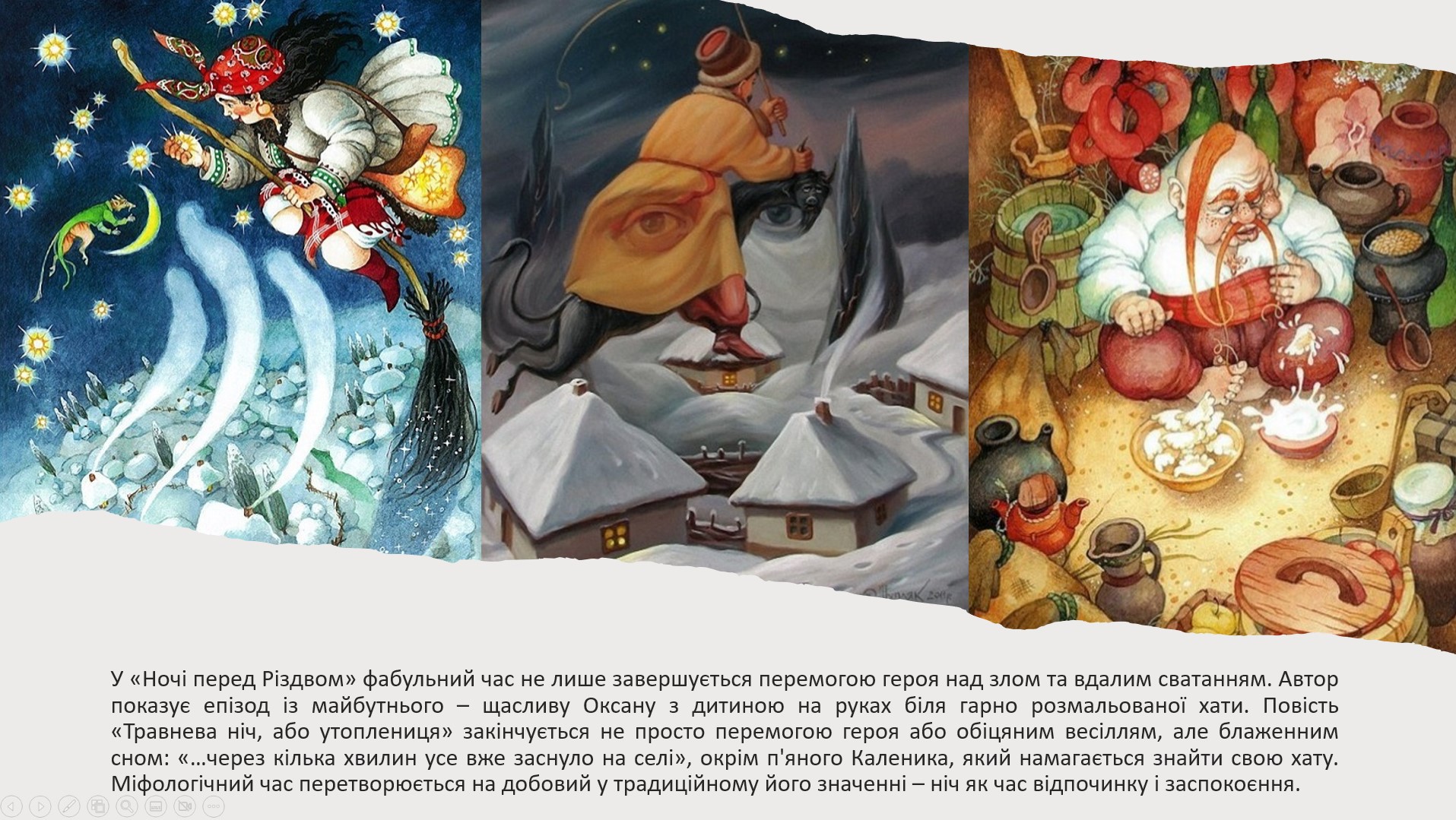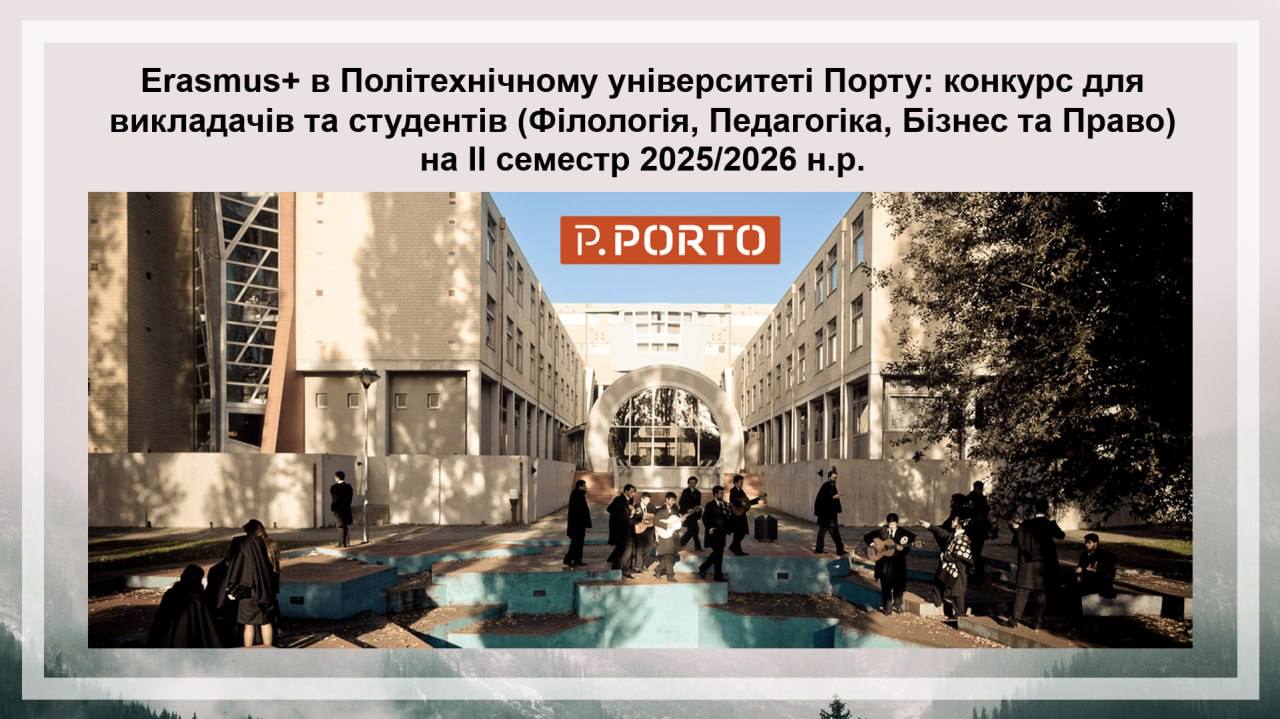On March 17, 2023, students of the fourth and fifth years of the specialty 035 “Philology” of the National University “Yuri Kondratyuk Poltava Polytechnic” under the leadership of the Chairman of the Council of Young Scientists of the Faculty of Philology, Psychology and Pedagogy, member of the Expert Council of Young Scientists at the Ministry of Education and Science of Ukraine, Candidates of Philological Sciences, Associate Professor of the Department of Germanic Philology and Translation, Anna Pavelieva held another sitting of the students’ scientific club “Philology”. The participants discussed the connection of the Ukrainian folk calendar, beliefs, rites and pagan-Christian symbols with the category of “artistic time” in the first cycle of novels “Evenings on a Farm Near Dykanka” by the outstanding writer Mykola Vasyliovych Gogol.


In particular, the students learned that all the stories of the cycle are correlated with certain terms of the folk calendar, considered cyclical time (season, day) as one of the forms of articulating time and dwelled in detail on the author’s and narrator’s use of various beliefs, in particular, about the evil eye (Basavriuk in “St. John’s Eve”), about the need not to utter words that could cause other misfortune (an episode in “May Night, or The Drowned Maiden” related to the story of the distiller’s mother-in-law), beliefs that prohibit banishing from the house the one who has entered it (in “May Night, or The Drowned Maiden”), as well as rites related to conspiracies (“St. John’s Eve”, “A Terrible Vengeance”).




Special attention was paid to the cycle of mystical events in the novels “Evenings on a Farm Near Dykanka”, as well as the role and functions of the magical number three in the writer’s first cycle. Club participants considered a special feature of Gogol’s chronotope – “the play of the vile one with time and space” as well as the deformation of time and space in combination with the motive of the test, the motive of the dream, and the motive of retribution.








The participants of the club learned about the completeness and incompleteness of artistic time as an important plot-forming element of Gogol’s text, the mystical and sacred significance of the St. John’s holiday, Christmas Eve and May rusalii [a feast in memory of the deceased of the ancient Slavs, memorial days, memorial rites – translator’s note], the symbolism of artistic chronology in the stories of Mykola Gogol, temporal discreteness as a powerful means of dynamising the plot and psychologism, changing the tense fictional time measured by the calendar.






Student translators investigated the role of evening and night time in the first cycle of works by Mykola Gogol. As for romantics, the night always had a certain emotional, symbolic meaning: it was a time of undivided rule of secret, often evil forces. Gogol’s night time is also one of the most complex components of the chronotopic picture of the world of the first collection: it merges cosmic, diurnal, calendar, mysterious, mythological, idyllic time. The image of the Ukrainian night “comes to life” in Gogol's short stories, taking on the features of a full-fledged “character”.







“It is worth noting the fact that the interest of literary scholars in the creative heritage of the outstanding author Mykola Gogol does not decrease over time. Together with the students of the Poltava Polytechnic, we are investigating the linguistic and phonetic aspects of the work of an outstanding fellow countryman, thanks to whom the whole world heard about Dykanka, Myrhorod and the crowded Sorochyntsi Fair,” – commented the head of the club, Candidate of Philological Sciences, Associate Professor of the Department of Germanic Philology and Translation of the National University “Yuri Kondratyuk Poltava Polytechnic” Anna Pavelieva.


It should be recalled that the sittings of the students’ scientific club “Philology” take place at the Faculty of Philology, Psychology and Pedagogy of the Poltava Polytechnic at least once a month.


The next sitting of the club will be held in April 2023, students, schoolchildren of Poltava and the region who are interested in the problems of linguistics, philology and translation studies are invited to participate.
For additional information on the time and place of the scientific club sittings, please contact the Department of Germanic Philology and Translation (Room 310-C) or directly the head of the club – Anna Kostiantynivna Pavelieva by phone: (095) 91-08-192
Previously, the members of the students’ scientific club “Philology” discussed the history, customs, traditions, symbols and superstitions associated with the most mystical holiday of the year – Halloween; studied the synthesis of chronotopes in the most famous collection of the mystical writer, discussed how to start a path in the most relevant professional field, discussed the peculiarities of translating Ukrainian realities into foreign languages, the FutureLearn educational platform for preparing for the IELTS Speaking Test, investigated the chronotopic coordinates of Mykola Gogol’s tale “May Night, or the Drowned Maiden”, presented translation studies of tokens for denoting food in the creative heritage of the writer, presented researches on the work of the author of the poem “Mazepa”, researched translations of phraseology in Mykola Gogol’s novel “Evening before Ivan Kupala”, studied the life and career of William Somerset Maugham, researched modern educational technologies, presented translation studies of the “father” of a classic detective, studied the creative heritage of Lake poets, exchanged life hacks on translating advertising slogans from global brands, researched a satirical novel by Mikhail Bulgakov and discussed the creative heritage of Polish science fiction writer, the work of the mystic writer and contemporary Nobel laureate writers, researched the origins of the popularity of British writers of the 20th century, discussed gender stereotypes imposed by advertising and the mass media, and conducted translation workshops for students of Scientific Lyceum No. 3.
Media Center of
National University “Yuri Kondratyuk Poltava Polytechnic”



